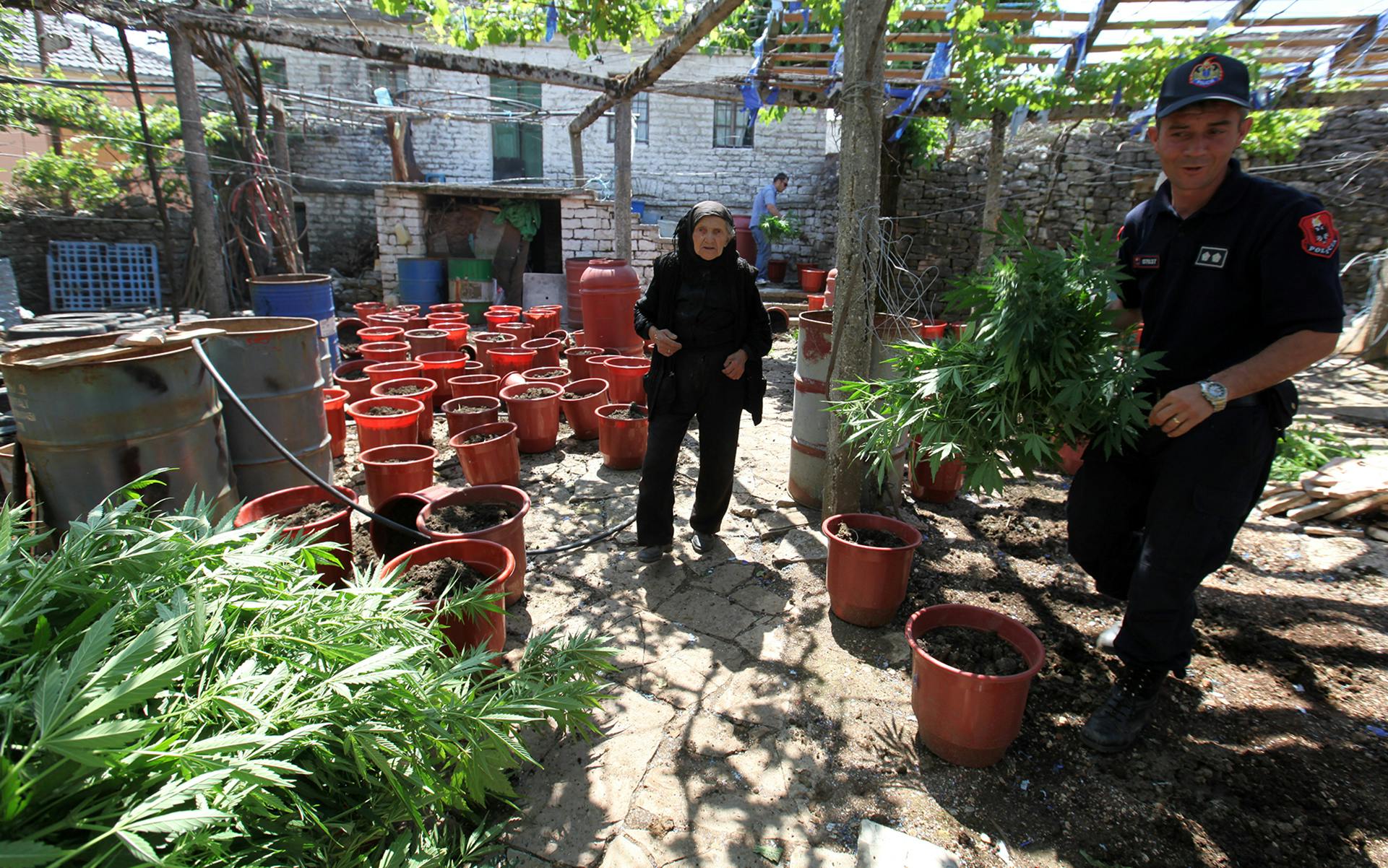What in the world is going on in Arkansas? The state has not one but two initiatives to legalize medical cannabis on November’s ballot. Both of have been hit with challenges in court. One is now facing legal pushback from a surprising source: a member of NORML’s legal committee.
The key players in this convoluted tale are one-time colleagues turned friendly foes, divided on how medical marijuana should be implemented in Arkansas.
Attorney David Couch previously worked on the 2012 campaign with the Arkansans for Compassionate Care, an initiated state statute that, in his words, “we lost by the hair of our chinny-chin-chin.” His proposal is on November’s ballot as the Arkansas Medical Marijuana Amendment.
Melissa Fults and Ryan Denham have spent years working on their medical marijuana initiative, whose ballot title, the Arkansas Medical Cannabis Act, or Issue 7 on the ballot, was approved by former Attorney General Dustin McDaniel. Fults and Denham have spent the past two years gathering signatures and support for the measure, mostly through grassroots efforts but also with the assistance of paid canvassers.
Why two separate initiatives? Because the advocates couldn’t agree on a few key issues.
As Couch explains it, home cultivation remains the biggest source of contention. “They don’t like my initiative, because theirs has a provision that would allow people to grow your own and mine doesn’t. Through all my polling, I don’t think the people of Arkansas will vote for one that includes a grow-your-own provision.”
Another disagreement comes down to ballot language, specifically phrases in the Arkansas Medical Cannabis Statute such as “cannabis care centers” in reference to dispensaries, and even the word “compassion,” as Denham explained. “Their reasoning says that when we use the word ‘compassionate,’ they call that political coloring, saying that we drafted our title in a partisan way that could alter how people understand and interpret the title.”
Both initiatives are on the ballot. But that could change with the drop of a gavel in court.
A third group, Arkansans Against Legalized Marijuana, has filed a lawsuit against both initiatives. The group is headed up by psychiatrist Melanie Conway and includes the Arkansas Chamber of Commerce, the Arkansas Farm Bureau, and the Family Council Action Committee. The lawsuit challenges the ballot titles under the guise that they are misleading to the public and should be thrown out.
David Couch laughed at the thought of them going after his title. “Mine was approved by the Republican attorney general in Arkansas, so if I get to the end of the process [of the lawsuit], I can say, ‘Hey, your team approved it. You’re criticizing your own Republican AG.’”
Although the lawsuit takes issue with the ballot title for each initiative, the legal action is technically filed against Secretary of State Mark Martin, whose authority “takes ownership” of the measures once they’ve been approved for the ballot. Martin’s office has filed a motion to dismiss the lawsuits. Meanwhile, the clock is ticking. “We only have 60 days left until the election,” Denham said. “For the Supreme Court to hear this case with oral arguments, that would take time—and they’re running out of time.”
Shop highly rated dispensaries near you
Showing you dispensaries nearThe lawsuits were annoying but, for the sponsors of both initiatives, they weren’t exactly a surprise. “We expected that we were going to face a lawsuit that tried to get us off the ballot,” Ryan Denham told Leafly earlier this week. “We had that happen in 2012, but we prevailed. Usually one of the lowest hanging fruits to try to kick someone off the ballot is to go after their ballot title.”
Then last Friday a wild card got thrown into the game.
“What do you mean NORML is suing us?“
Arkansans for Compassionate Care received word last week that they were on the receiving end of yet another lawsuit. This time the attack came from a wholly unexpected source: Kara Benca, a Little Rock criminal defense attorney and lifelong member of the NORML legal committee. Her suit went after the Arkansas Medical Cannabis Act but not the Arkansas Medical Marijuana Amendment.
Denham was shocked. “I started getting messages saying, ‘NORML is suing you.’ And we were confused, like, ‘What do you mean NORML is suing us?’” he said.
Upon further investigation, however, things were far from what they seemed.
“Basically the NORML legal committee is a way for attorneys to advertise their legal services on their site [for people who] might get arrested for cannabis,” said Denham.“It’s just an advertising thing. She in no way represents NORML at all. NORML has already condemned the lawsuit and said they do not support it.”
Leafly confirmed this with the NORML’s Arkansas chapter. Glen Schwarz, executive director of Arkansas NORML, expressed his disbelief upon hearing news of the lawsuit. “I was shocked to hear that a member of the NORML legal committee was pressing this lawsuit,” Schwarz said. “We do not support this lawsuit.” On the contrary, he insisted, “We do and will continue to support both initiatives.”
If Benca represents the cannabis community, then why the lawsuit?
Benca’s law firm didn’t respond to Leafly’s request for comment.
“If you don’t follow the rules, then the signatures that were collected don’t count.”
Couch walked through the specifics of Benca’s lawsuit, as best as he could figure it. “In 2013 … our General Assembly changed a lot of the laws in regards to canvassing, specifically in regards to how you have to do paid canvassers,” he said.“Benca’s lawsuit basically says that the Cannabis Act canvassers didn’t follow the rules. If you don’t follow the rules, then the signatures that were collected by those who didn’t follow the rules don’t count. And if you take those away, then they’re below the number they need to get on the ballot.”
Denham expressed confidence in the signatures, the canvassers, and the process undertaken to bring the Medical Cannabis Act before voters. “Our campaign did diligent work following the rules to ensure that everything was done properly and that all paid canvassers’ work was done properly,” he said, reflecting on the unusual circumstances of the campaign.
“Fighting a competitor and then fighting the normal opposition groups — and now having two suits against us,” he chuckled dryly. “It’s been an interesting one.”






